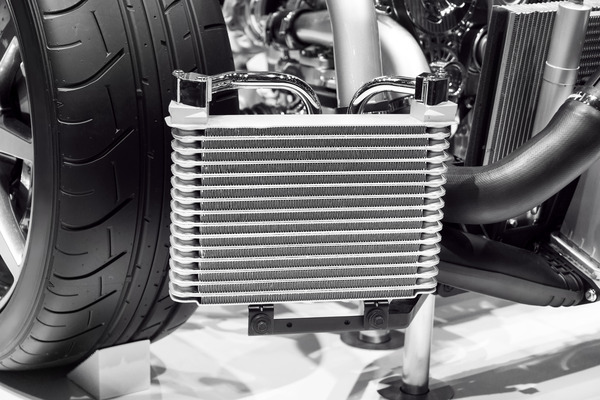
As a car owner, have you ever wondered about the condition of your vehicle's radiator? You may have heard about the significance of radiator maintenance but are unsure if it's essential. That is the main reason behind today's article -; we will answer the important question: Does the cooling system's radiator require cleaning or servicing? Join us as we explore this critical aspect of vehicle upkeep.
Radiator Basics
Before we dive into the nitty-gritty of radiator maintenance, let's first grasp the significance of this component within your car's cooling system. Its primary function? To dissipate heat generated by the engine, ensuring optimal operating conditions.
Essentially, it prevents your engine from overheating, which can lead to catastrophic consequences if left unchecked.
Did you know: Coolant, or antifreeze, is vital for your radiator's health. It regulates engine temperature, prevents freezing, and guards against corrosion. Regularly checking and replenishing coolant levels ensures optimal radiator performance.
The Telltale Signs of Radiator Trouble
Now that we comprehend the radiator's vital role, how can we identify when it's due for a tune-up? Keep an eye out for these red flags:
• A puddle of bright green liquid beneath your parked car could indicate a coolant leak, signaling potential radiator issues.
• Is your temperature gauge creeping into the danger zone? This could signify inadequate radiator function, requiring immediate attention.
• Cracks, corrosion, or physical damage to the radiator are clear indicators that servicing is in order.
The Importance of Regular Maintenance
Now that we've pinpointed the warning signs, let's address the elephant in the room: servicing your radiator. Some car owners may view it as an unnecessary expense, but the truth is, regular maintenance can save you from costly repairs down the road. Routine checks and cleanings ensure optimal radiator performance, prolonging its lifespan and preserving your engine's health.
Did you know: Radiator flushing removes contaminants and sediment buildup, enhancing cooling efficiency and preventing corrosion? Incorporate this maintenance procedure into your routine for improved engine performance and longevity.
DIY vs. Professional Servicing - Which is Right for You?
When it comes to radiator maintenance, you have two options: tackle the task yourself or enlist the expertise of a professional mechanic. While DIY enthusiasts may opt for the former to save on costs, weighing the risks versus rewards is crucial. Mishandling delicate radiator components could exacerbate issues, leading to more extensive damage. Conversely, skilled technicians possess the knowledge and tools to perform thorough inspections and repairs, providing peace of mind for car owners.
Questions You Might Have
How often should I have my car's radiator serviced?
Regular maintenance intervals vary depending on factors such as vehicle age and usage patterns. Consult your owner's manual or a trusted mechanic for personalized recommendations.
Can neglecting radiator maintenance impact other engine components?
Absolutely. A malfunctioning radiator can lead to engine overheating, which may cause damage to other vital components such as gaskets, hoses, and even the engine block itself.
What are some DIY tips for maintaining radiator health between professional servicing?
Simple tasks such as regularly checking coolant levels, inspecting for leaks, and gently cleaning debris from the radiator fins can help preserve its efficiency and prevent potential issues.
Sherman Oaks Exclusive is one call away from helping out with expert radiator repairs and maintenance! We will get you in and out of the shop ASAP.